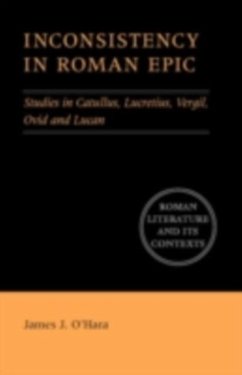How should we react as readers and as critics when two passages in a literary work contradict one another? Classicists once assumed that all inconsistencies in ancient texts needed to be amended, explained away, or lamented. Building on recent work on both Greek and Roman authors, this book explores the possibility of interpreting inconsistencies in Roman epic. After a chapter surveying Greek background material including Homer, tragedy, Plato and the Alexandrians, five chapters argue that comparative study of the literary use of inconsistencies can shed light on major problems in Catullus' Peleus and Thetis, Lucretius' De Rerum Natura, Vergil's Aeneid, Ovid's Metamorphoses, and Lucan's Bellum Civile. Not all inconsistencies can or should be interpreted thematically, but numerous details in these poems, and some ancient and modern theorists, suggest that we can be better readers if we consider how inconsistencies may be functioning in Greek and Roman texts.
Dieser Download kann aus rechtlichen Gründen nur mit Rechnungsadresse in A, B, BG, CY, CZ, D, DK, EW, E, FIN, F, GR, HR, H, IRL, I, LT, L, LR, M, NL, PL, P, R, S, SLO, SK ausgeliefert werden.

